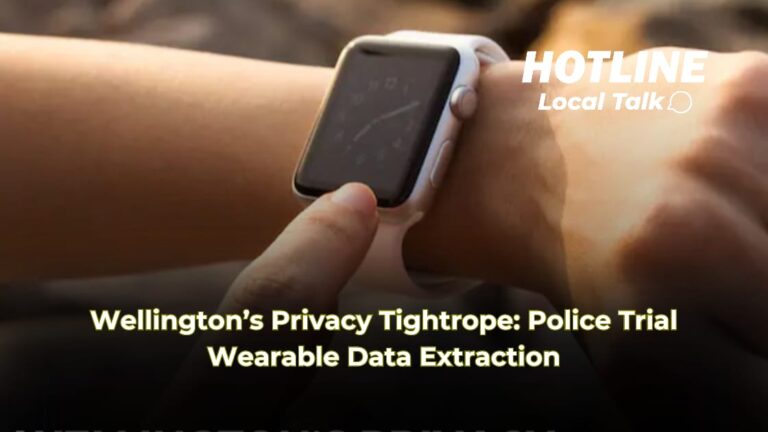In Wellington, New Zealand’s capital of 215,000, a police trial of a high-tech tool to extract data from wearable devices like smartwatches is sparking debate. The technology, MOBILEdit from Prague-based Compelson Labs, is part of a broader push to modernise policing, as outlined in a 64-page police tech capabilities report released in April 2025. While the trial’s specifics—location, scope, and duration—remain undisclosed, its potential to reshape investigations in a tech-savvy city like Wellington demands scrutiny. As police navigate this new frontier, the balance between catching criminals and protecting privacy hangs in the air.
MOBILEdit targets data from devices obtained lawfully via search warrants or consent, focusing on wearables that 68% of Wellington adults use, per a 2024 tech survey. Smartwatches track steps, heart rates, messages, and GPS trails—data that could place a suspect at a crime scene, like a burglary in Thorndon or a theft on Lambton Quay. In 2023, Wellington recorded 9,800 criminal cases, with digital evidence pivotal in 65% of them. A tool like MOBILEdit could speed up investigations, easing pressure on courts where delays frustrate victims. Police already use Cellebrite, an Israeli tool, to unlock phones, and MOBILEdit could complement it by cracking the growing wearable market.
Yet, Wellington’s progressive ethos—where 74% of residents prioritise digital privacy, according to a 2024 council poll—casts a wary eye. Wearables sync to cloud platforms, storing sensitive details like sleep patterns or medical alerts. If mishandled, this data risks exposing personal lives. The 2020 Clearview AI scandal, when police tested facial recognition without approval, looms large. Exposed by RNZ, it forced a tech stocktake and eroded trust, with only 82% of Wellingtonians now confident in police, down from 92% in 2019. Privacy advocates, like Victoria University’s Dr. Nessa Lynch, warn that New Zealand’s Privacy Act 2020 lacks specific rules for wearable tech, leaving gaps in oversight.
On Wellington’s streets, reactions mix hope and unease. Cuba Street vendor Mia Thompson, 30, sees potential. “If it stops the 12% spike in petty thefts we’ve had, I’m in,” she says, referencing 2024 crime stats. But Karori IT worker James Lee, 42, fears overreach. “My smartwatch maps my runs around the Botanic Garden. I don’t want police accessing that without ironclad rules,” he says. These voices echo a city wrestling with innovation’s double edge.
Wellington’s $3.4 billion digital economy, home to 1,200 tech firms, thrives on trust. Police hope MOBILEdit will cut case backlogs, vital in a city where cybercrime rose 15% last year. The tool could integrate with SearchX, a 2023 platform linking suspects across suburbs from Hataitai to Ngaio. But the trial’s secrecy—unlike the transparent Microsoft AI cloud trial in Wellington since 2023—raises red flags. A 2022 privacy assessment of that cloud shift warned of “severe detrimental impacts” if data leaked, a risk MOBILEdit shares given wearables’ cloud reliance.
The trial’s outcome could redefine Wellington’s policing. Success might streamline justice, boosting safety in a city where crime dropped 7% in 2024. Failure, especially a data breach, could fracture trust in a community that values openness. Police face pressure to clarify MOBILEdit’s use, learning from past missteps like Clearview. As Wellington watches, the trial tests not just technology but the city’s faith in those sworn to protect it. In a capital that prides itself on fairness, the stakes couldn’t be higher.
TRUTH SEEKER
Instantly run a Quiz with friends... about the article. Interact more & analise the story. Dig in, catch out biased opinions, and "fact check" with TRUTH SEEKER by ONENETWORK WELLINGTONLIVE 👋
Do you agree with the main argument of this article?
Total votes: 2
What percentage of Wellington adults use wearables according to a 2024 tech survey?
Bias Analysis
Fact Check Summary
True, as stated in the article.
Source: Article
True, as mentioned in the article.
Source: Article








